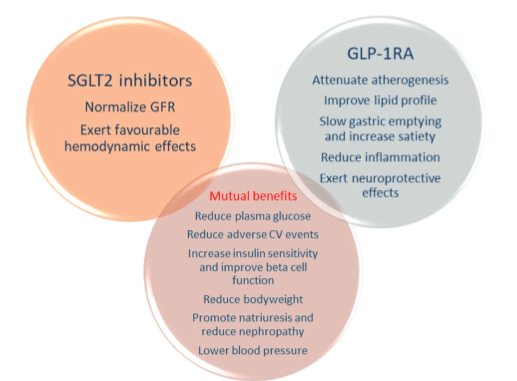
Type 2 diabetes (T2D) is the fastest growing health problem worldwide. Due to the development of modern technologies, a significant progress has been made in the last decade to understand the role of genetics in the risk of the disease, but also in treatment response to the antidiabetic drugs.
According to the most recent clinical guidelines for the medication-based therapy of T2D, the use of novel antidiabetic drug classes: SGLT-2 inhibitors, GLP-1 receptor agonists and DPP-4 inhibitors, has been recommended. Apart from their good efficacy and safety profile, the SGLT-2i and GLP-1RA also show protective and beneficial effects in patients with recognized cardiovascular and renal complications. However, we now know that patients show different responses to these drugs, which may be associated with patients’ different genetic background.
Therefore, in the review article published in BJBMS, the authors summarized the current knowledge on gene variations that can affect efficacy and safety of the three drug classes.
Research studies published so far show that there are many various genes which could be involved in the treatment response. The majority of these are genes encoding drug targets and genes that have been earlier associated with T2D risk.
However, since most of the results were based on small groups of patients, further larger studies are needed to prove their findings.
Still, there is no doubt that this research area is a promising path to more precise, and thus more effective and safer treatment for patients with T2D in the future.
Reference:
Leave a Reply